
Kristina Hook
Assistant Professor of Conflict Management, Kennesaw State University
I am an Assistant Professor of Conflict Management at Kennesaw State University’s School of Conflict Management, Peacebuilding, and Development. As an anthropologist and scholar-practitioner, I specialize in genocide and mass atrocity prevention, emerging technologies and disinformation, post-conflict reconstruction, and war-related environmental degradation. A specialist in Ukraine and Russia, I have worked in 25+ countries including across Eastern Europe, the Balkans, the Middle East, East Africa, Southeast Asia, and the Caribbean.
Supported by National Science Foundation, Fulbright, USAID, and other grants and fellowships, I am writing a book about the Ukraine-Russia war. This book discusses Joseph Stalin's historical genocide against Ukraine (the Holodomor) and how modern leaders interpreted this history to predict both Russia's modern genocidal war and Ukraine's stunning resistance. This book draws from more than 8 years of research on the Russia-Ukraine war, including 2.5 years of fieldwork across 32 Ukrainian cities and towns. My book is also based on my doctoral dissertation, which won the Kellogg Institute for International Studies Distinguished Dissertation in Democracy and Human Rights Award and was nominated for several other university and international awards.
I received my joint PhD in peace studies and anthropology from the University of Notre Dame’s Kroc Institute for International Peace Studies and Department of Anthropology. I hold M.A. degrees in anthropology (2019) and in international development (2012) from the University of Notre Dame and the University of Denver’s Josef Korbel School of International Studies respectively. My B.A. in anthropology is from the University of Florida, where I graduated as a valedictorian.
Prior to my time in academia, I served as a policy advisor at the U.S. Department of State's Bureau of Conflict and Stabilization Operations and as a political/economic officer in an embassy abroad. I received a U.S. Department of State Meritorious Honor Award for my work on preventing and responding to mass atrocities and was a 2013-2015 Presidential Management Fellow.
I have also held leaderships roles at several international development and conflict resolution non-governmental organizations (NGOs). At George Mason University's Jimmy and Rosalynn Carter School for Peace and Conflict Resolution, I served as the inaugural Executive Director of the Better Evidence Project which bridges gaps in policy, research, practice, and donors in the war prevention field. In 2017, I was recognized with the Society for Applied Anthropology's Human Rights Defender Award.
Presently, I am a non-resident fellow at the Marine Corps University's Krulak Center for Innovation and Future Warfare. I regularly consult with government, multilateral, and human rights organizations.
Less ![]()
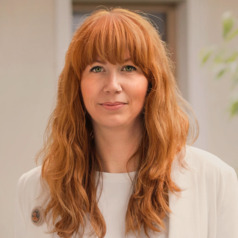
Kristina Kironska
Socially engaged interdisciplinary academic, with experience in election observation, research, advocacy, and activism. Studied IR in Slovakia, Portugal, and Taiwan. Conducted doctoral research and worked for a local NGO in Myanmar. Lectured at the University of Taipei and organized monthly (public) human rights talks. Currently, Assistant Professor at the Palacky University Olomouc, and Co-Director of the think tank Central European Institute of Asian Studies, as well as Chair of the Board of Amnesty International Slovakia. Also, Deputy Editor of the International Journal of China Studies. Research focusing on Myanmar affairs, Taiwan affairs, CEE-China/Taiwan relations, human rights, and migration.
Less ![]()
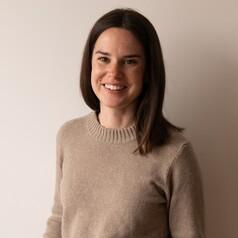
Kristina Thompson
Assistant professor, Health & Society, Wageningen University
I have degrees in economics, health sciences and history, although my research is most at home in health demography. In my research, I explore long-run changes in health and mortality, and use statistical and computational methods to do so. My Ph.D. project (alongside Bjorn Quanjer) focused on explaining how the Dutch have grown to be the tallest nation in the world, and what consequences this might have for social, economic and health outcomes.
Less ![]()
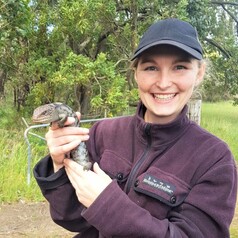
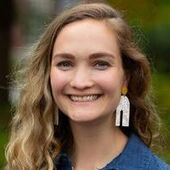
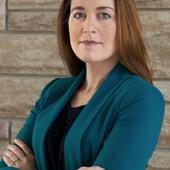
Kristina R. Llewellyn
Professor, Wilson College of Leadership and Civic Engagement & Department of History, McMaster University
Less ![]()
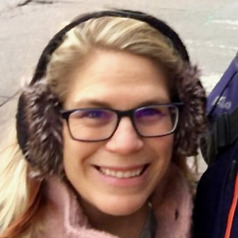
Kristina S. Brown
Professor and Chair of Couple and Family Therapy, Adler University
Dr. Brown is a Professor and core faculty in the Couple and Family Therapy Department serving as Chair since Fall 2015.
Dr. Brown has held leadership positions serving the field across four states (California, New York, Missouri, and Illinois) and was a member of the Elections Council for American Association for Marriage and Family Therapy (AAMFT) from 2018-2021. She has been a Site Visitor for the Commission on Accreditation for Marriage and Family Therapy Education (COAMFTE) since 2013 and trained to be a Site Visit Chair in January 2016.
Dr. Brown has a strong history of over 50 regional, national, and international presentations including conferences with AAMFT, Illinois Affiliation of Marriage and Family Therapists (IAMFT), International Family Therapy Association (IFTA), Collaborative Family Healthcare Association (CFHA), Qualitative Research in Mental Health, and the Society for Sex Therapy and Research (SSTAR) and has delivered over 80 units of continuing education.
Dr. Brown is the Editor-in-Chief of the Journal of Feminist Family Therapy and Editor of the new AAMFT Systemic Ethics Textbook (anticipated release for fall 2023). She also serves as the Director of Mental Health Board Member for Floating Doctors and is a frequent donator as a quiltmaker to Project Linus!
Dr. Brown identifies as a feminist (social justice) qualitative researcher with a broad focus on the experiences of women across identities as represented in her publications. Her specific areas of interest are varied including approaches to qualitative research, the impact of COVID-19 on couples and families, sexual harassment (#metoo) in higher education, the experiences and treatment of endometriosis (medical family therapy), and infidelity. Other scholarly passion projects are exploring tattoos in academia and academics who swear!
Less ![]()

Kristine Crous
Senior Lecturer, Hawkesbury Institute for the Environment, Western Sydney University
Dr Kristine Crous is a Senior Lecturer, coming to Western Sydney University from the Australian National University.
Her research has focussed on physiological mechanisms plants use to respond to global climate change factors, principally elevated CO2 and climate warming, but also the effect of nutrient availability (both nitrogen and phosphorus) on the CO2 response.
In her previous postdoc at WSU, she investigated how nutrient availability affects the responses of photosynthesis and leaf respiration to elevated CO2 at EucFACE. In a unique project linking phosphorus (P) limitations to photosynthesis and growth, she combined extensive field work at EucFACE measuring gas exchange with low O2, a technique often used in labs but rarely in the field. These measurements were combined with challenging labwork critical to elucidate the observed field mechanisms during which she extracted leaf P and other P-containing components from the leaf. This work resulted in new insights in the role of photorespiration, regarded as a wasteful process, in leaf P-recycling.
She also has been pursuing the temperature responses of photosynthesis and respiration on large trees at the Hawkesbury Forest Experiment. Because of unprecedented rates of warming expected in this century, she has investigated the capacity of Eucalyptus species to adjust to warmer conditions, mostly on large trees. She demonstrated that warming reduced leaf respiration at a given temperature in summer, with drought further exacerbating this reduction (Crous et al. 2011). In a warming study on Eucalyptus globulus (Crous et al. 2013) she reported a physiological temperature limit in summer because air temperatures far exceeded the temperature optimum of the species. Building on this work, she and her collaborators found less capacity to cope with warming within two widely-distributed Eucalyptus species ranging from tropical to temperate climates (Drake et al. 2015). Her data have been incorporated in several large-scale models to understand future ecosystem functioning.
Recently, she won a 2016 ARC Discovery Early Career Award (DECRA) to investigate how rainforest species will cope with climate warming. The response of rainforest species to climate warming is one of the largest uncertainties in the future terrestrial carbon cycle. This work aims to give us a predictive capacity for the temperature sensitivity of unique rainforest species. A narrow temperature optimum of photosynthesis is expected in rainforests as these species are thought to be more specialised due to a thermally stable environment. This may mean reduced rates with warming if they have limited capacity to adjust. The multi-faceted nature of her DECRA proposal, combining observational and experimental approaches, will maximise our understanding of how, and how much, rainforest tree species will adjust to warmer temperatures while also relating these responses to climate variability.
Less ![]()
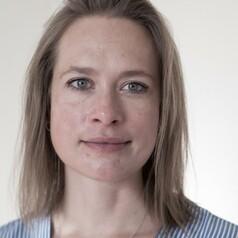
Kristine Engemann Jensen
Assistant Professor, Aarhus University
I do research in natural environments and health, climate and biodiversity using Big Data and GIS. Currently working on an interdisciplinary project about green urban development in South Africa trying to combine perspectives from geography, ecology, landscape architecture, sociology and political science.
Less ![]()
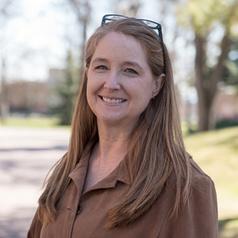
Kristine Hoover
Professor of Organizational Leadership, Gonzaga University
Dr. Kristine F. Hoover is a professor and chair of the Master of Arts in Organizational Leadership program where she leads the Change Leadership concentration. Some of her past leadership positions include director of the Gonzaga Center for the Study of Hate, chair of the Washington State Legislative Ethics Board, and trainer for the Society for Human Resource Management (SHRM). She came from Bowling Green State University in Ohio to Gonzaga in 2009, drawn by its Catholic, Jesuit, Humanistic mission.
Under Dr. Hoover's directorship, the Gonzaga Center for the Study of Hate has continued to publish the Journal of Hate Studies, a peer reviewed academic journal, and honored the legacy of holocaust survivor Eva Lassman through the Take Action Against Hate and Student Research awards. She designed new courses at the freshman, senior, and graduate levels to support students’ understanding of why people hate and leadership to counter hate. Her most recent publications include Countering Hate: Leadership Cases of Nonviolent Action, which explores the leadership of ordinary people who have accomplished extraordinary things to build inclusive communities and counter hate groups across the United States.
Projects currently underway include the creation of a digital archive honoring the leadership of photographer Diana Gissel, who documented the demise of the Idaho Aryan Nations compound; the creation of a documentary honoring the lifetime achievements of Dutch Resistance fighter Carla Peperzak, a woman whose leadership directly saved the lives of 40 people from Nazi extermination and who continues to educate the next generation about the importance of tolerance and inclusion; and the PNW MOSAIC, an online storytelling resource to acknowledge and celebrate people and places of the Pacific Northwest: Mapping Othering, Strength, & Allyship In Community.
Less ![]()
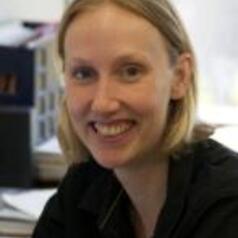
Kristine Spekkens
Professor, Physics, Engineering Physics and Astronomy, Queen's University, Ontario
Kristine Spekkens is a professor in the Department of Physics, Engineering Physics and Astronomy at Queen's University. Her research focusses on understanding the structure of nearby galaxies.
Less ![]()
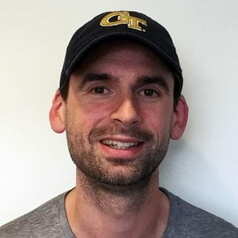
Kristofer Wollein Waldetoft
Postdoctoral Fellow in Infection Medicine, Georgia Institute of Technology
Kristofer Wollein Waldetoft is a postdoctoral fellow with the Cystic Fibrosis Foundation, working in the laboratory of Sam P. Brown at the Georgia Institute of Technology. The overarching theme of his research is to use theory and concepts from evolution and ecology to address the problem of antibiotic resistance in pathogenic bacteria. In particular, he uses modelling and experiments to better understand the evolutionary ecology of antibiotic resistance in chronic lung infections in patients with cystic fibrosis, a genetic disease that affects several organ systems, including the lung, where it results in life-long infection. For the future, he aimes to combine research on resistance evolution with work in the clinic. Kristofer's background includes the Lund University medical school and a PhD in infection medicine in the laboratory of Lars Björck at the aforementioned university. During his PhD training, he investigated interactions between surface proteins of streptococci and the human blood clotting system, as well as the mechanisms by which saliva induces blood clotting. In his spare time, he rides a laid back bike and paddles on the Chattahoochee river.
Less ![]()
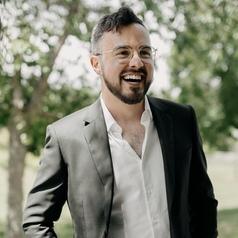
Kristopher Nielsen
Adjunct Research Fellow and Clinical Psychologist, Te Herenga Waka — Victoria University of Wellington
Clinical Psychologist based in Wellington, New Zealand
Less ![]()
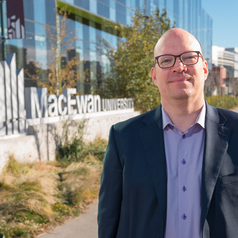
Kristopher Wells
Dr. Kristopher Wells (He/Him) is an Associate Professor and the Canada Research Chair (Tier II) for the Public Understanding of Sexual and Gender Minority Youth at MacEwan University. His scholarly work specializes in sexual and gender minority youth, health, education, sport, and culture. Dr. Wells is one of the driving forces behind the creation of many ground-breaking initiatives including PrideTape, Camp fYrefly, Edmonton Queer History Project, and NoHomophobes.com. Dr. Wells is a frequently invited national and international speaker on sexual and gender minority youth issues. He has served as an expert scientific consultant to the Government of Canada, Canadian Senate, Canadian Museum of Human Rights, Canadian Teachers’ Federation, RCMP, Public Health Agency of Canada, UNESCO, World Health Organization, and many provincial and municipal governments across Canada. Currently, Dr. Wells serves as the Editor-in-Chief of the International Journal of LGBT Youth, which is the world’s leading research publication on 2SLGBTQ+ youth. His work has been recognized with over 50 scholarly and community awards and recognitions including the Alberta Teachers’ Association’s Public Education Award, University of Alberta’s Alumni Horizon Award, Alberta Centennial Medallion, and the Queen’s Platinum Jubilee Medal.
Less ![]()

Kristopher Wilson
Director of Indigenous Leadership and Engagement and Senior Lecturer in the Faculty of Engineering and IT and Faculty of Law, University of Technology Sydney
Kris Wilson is the Director of Indigenous Leadership and Engagement and Senior Lecturer in the Faculty of Engineering and IT at the University of Technology Sydney. He has a joint appointment with the Faculty of Law. His research interests are in cybersecurity, computer-related crime, Indigenous traditional knowledge in a digital context, Indigenous legal relations and cultural and intellectual property protection. He is consistently rated by students as one of the top teachers and subject coordinators across both core law subjects and electives. Kris currently teaches Real Property Law and Criminal Law.
Less ![]()
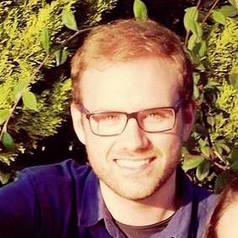
Kristopher Wilson
DPhil. Candidate in Cybersecurity, University of Oxford
Kristopher Wilson is a DPhil candidate in Cybersecurity(Law) at the University of Oxford, and a Sessional Lecturer in Intellectual Property Law and Internet Law at the University of Reading. His current research involves evaluating the utility of the Computer Misuse Act in adequately responding to the developing nature of the use of computers in criminal activity.
Prior to this he was an Associate Lecturer and Academic Advisor at Yunggorendi First Nations Centre at Flinders University, teaching Introduction to Indigenous Studies, advising Indigenous Law and Business Students, and working in school and community outreach programs. He was also a Sessional Tutor at Flinders Law School working in the topics Introduction to Public Law, and Legal Research and Writing.
Kristopher undertook his LLB(Hons) at Flinders University, and his LLM at the University of New South Wales.
Outside of Academia, Kristopher has worked with the South Australian Law Society's Indigenous Young Lawyers Mentoring Program, worked on various research projects with the South Australian Attorney General's Department, and continues to work as a mentor with 'The Aspiration Initiative' program.
Less ![]()
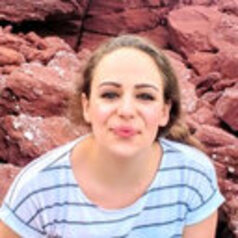
Kristy Adaway
PhD Candidate in Animal Psychology , University of Hull
PhD student at the University of Hull investigating whether studies of animal psychology can benefit conservation efforts and change public attitudes of wild mammalian carnivores
Less ![]()
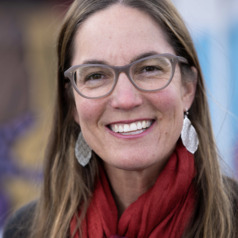
Kristy Nabhan-Warren
Associate Vice President of Research, University of Iowa
I am a Religious Studies-trained Ph.D. and my research and scholarship focuses on religion, migration, and work in the United States. I focus on the cultural history and anthropology of Catholicism and am a specialist in Latina/x/o Catholicisms. I have authored five books and numerous articles and am working on a new book about the value of colleges and universities today, and why the humanities matter more than ever. I have been a college professor since 2001, and have mentored numerous undergraduates and graduate students in the humanities and adjacent fields. I am currently Associate Vice President of Research at The University of Iowa, where I oversee and support faculty and graduate student research and creative work in the arts, humanities, and social sciences.
Less ![]()

Kristy Timmons
Associate Professor, Early Childhood Education, Queen's University, Ontario
Dr. Timmons is an Associate Professor and Graduate Faculty Member in Early Childhood Education at the Faculty of Education, Queen’s University. Dr. Timmons completed her MA in Child Study and Education at the Dr. Eric Jackman Institute of Child Study, University of Toronto and her PhD in Developmental Psychology and Education at the Ontario Institute for Studies in Education (UofT). Dr. Timmons’ teaching experience spans the early years, elementary, undergraduate, and graduate levels. Her research interests centre on the processes that influence young children’s learning, engagement, and self-regulation. Within this focus, she has carried out research with children, families, and pre- and in- service educators. Dr. Timmons is also an Associate Faculty Member of the Assessment and Evaluation Group (AEG) at Queen’s University. AEG faculty members and graduate students engage in independent and collaborative research, program reviews and consulting.
Research Interests
Building capacity in the early years through improved policies and practices
Advancing equitable access, experiences, and outcomes in early childhood education
Improving understanding of self-regulation and self-regulation assessment practice
Educator expectations, beliefs, and practices
Play-based learning
Experience
Less ![]()
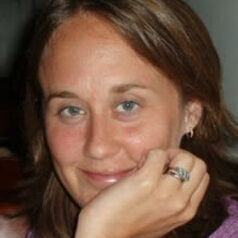
Kristyn Gorton
Professor of Film and Television, University of Leeds
I have published extensively on film and television, particularly on feminist media studies, emotion and affect, British television history, and discourses on care in contemporary culture. My most recent publication is
Remembering British Television: Audience, Archive and Industry (BFI/Bloomsbury, 2019) with Professor Joanne Garde-Hansen, and I'm currently writing a monograph on Sally Wainwright for Manchester University Press with Professor Beth Johnson.
Less ![]()


Kritika Jerath
Assistant Professor in Criminology, University of Nottingham
Kritika is an Assistant Professor in Criminology at the University of Nottingham. She obtained a BA in Criminology and Criminal Justice: Law from Carleton University and completed her MPhil and PhD in Criminology at the University of Cambridge. Her MPhil was a theoretical explanation of human rights abuses in Abu Ghraib, post 9/11, while her PhD focused on understanding police use of force and officer decision-making.
Kritika's current research interests include psychosocial elements of criminal decision-making and crime prevention. During her role as Research Fellow at UCL, Kritika was involved in the evaluation of a stalking intervention programme (MASIP) which sparked her interests in stalking, offender risk-management and crime prevention. She is currently evaluating a similar initiative (EASI), commissioned by the West Midlands Police and Home Office.
Less ![]()

Krittika Goyal
Assistant Professor of Manufacturing and Mechanical Engineering Technology, Rochester Institute of Technology
Less ![]()
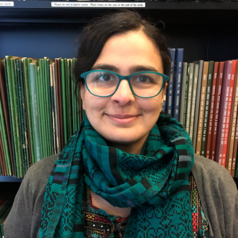
Krupa Shandilya
Associate Professor of Sexuality, Women's and Gender Studies, Amherst College
I am a scholar and translator of Urdu poetry, and have written several publications on Urdu literature as well as scholarly translations. I published a translation of M.H. Ruswa’s Urdu novella "The Madness of Waiting" (Zubaan/University of Chicago Press, 2013; with Taimoor Shahid) and co-translated the poetry of the Urdu modernist poet Miraji. My research and teaching interests include Urdu, Bengali, Hindi and South Asian Anglophone literature and poetry, postcolonial literature and theory, feminist theory, and South Asian cinema. I'm currently working on a book project (under contract at Northwestern University Press) on the role of Urdu poetry in Indian public culture.
Less ![]()
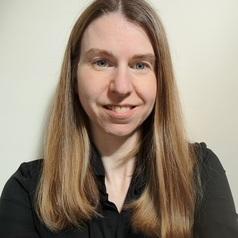
Krystal Wilkinson
Reader (Associate Professor) in Human Resource Management, Manchester Metropolitan University
Dr Krystal Wilkinson is Reader (Associate Professor) in Human Resource Management, based at the Business School’s Centre for Decent Work and Productivity at Manchester Metropolitan University. Her research focuses on the work-life interface, women’s health and wellbeing at work. Recent research projects have focused on solo-living staff; complex fertility journeys (including employees going through fertility treatment, experiencing pregnancy loss and involuntary childlessness); mental health in pregnancy and post-birth; and women’s health more broadly and employment. She has published in leading academic journals, featured in various media outlets and trade press (including the BBC, the Wall Street Journal and People Management magazine), and is co-editor of the forthcoming book: Work-Life Inclusion: Broadening perspectives across the life-course.
Krystal is passionate about knowledge exchange and is working with various stakeholders to raise awareness and create resources, including the CIPD, national charities and employers. Prior to studying for her PhD at Leeds University, Krystal held operational Human Resource Management roles in different industries, including construction, retail and hospitality. She is a Chartered Member of the CIPD and was a member of the CIPD National Examinations team for 15 years.
Less ![]()
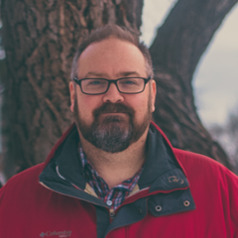
Krystopher Chutko
Assistant Professor, Department of Geography and Planning, University of Saskatchewan
Dr. Krys Chutko is an Assistant Professor in the Department of Geography and Planning and has been teaching at the University of Saskatchewan since 2016. Krys has been a field researcher since 1999 in a variety of fields, primarily looking at paleoenvironmental reconstructions, hydro-climatology, and the influence of land use change on terrestrial and aquatic systems. In 2018, Krys was awarded with a USSU Teaching Excellence Award.
Less ![]()

Kumuthini Sivathas
Trade Economist, Institute for International Trade, University of Adelaide
Less ![]()
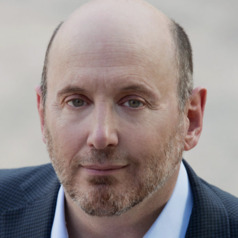
Kurt Eichenwald
Senior Investigative Editor, The Conversation
Kurt is the New York Times bestselling author of six non-fiction books. In addition to his distinguished work as a senior writer at Newsweek and a contributing editor at Vanity Fair, he spent two decades as a senior writer at The New York Times, where he was a two-time finalist for the Pulitzer Prize. He is also a two-time winner of the George Polk Award, and a winner of the Payne Award for Ethics in Journalism, the SABEW Award for business enterprise reporting, and an Emmy Award nominee.
Less ![]()
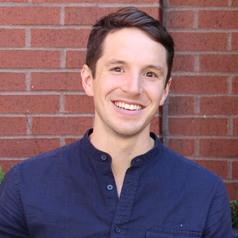
Kurt Hager
Instructor of Epidemiology, UMass Chan Medical School
Kurt Hager is an Instructor in the Division of Epidemiology, Department of Population and Quantitative Health Sciences at UMass Chan Medical School. Dr. Hager’s interests lay at the intersection of structural determinants of health, food insecurity, and government nutrition and health insurance programs. His current research focuses on the effectiveness of nutritional interventions and policies on chronic disease in the U.S, including evaluations of produce prescriptions and medically tailored meals integrated into clinical care. At UMass Chan Medical School, Dr. Hager is evaluating the effectiveness the Flexible Services Program, which addresses food and housing insecurity under Massachusetts’s Medicaid Section 1115 Waiver. Dr. Hager has training in nutritional epidemiology and quantitative research methods and his recent studies have included policy modeling and economic evaluations, quasi-experimental evaluations, and legal and policy analyses.
Dr. Hager’s involvement in policy initiatives underscores his commitment to translating science into evidence-based policy. These include former projects at the Center for Health Law and Policy Innovation at Harvard Law School, as an author on the Aspen Institute’s Food is Medicine Research Action Plan, and as a writer with the Task Force on Hunger, Nutrition and Health. He is currently serving as a steering committee member of the National Produce Prescription Collaborative.
Less ![]()
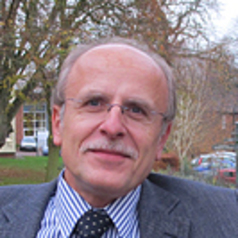
Kurt Richard Luther
I am Professor of Comparative Politics at Keele University, where I convene the Keele European Parties Research Unit (KEPRU).
My current research focuses mainly on political parties, including their organization, their role in deeply divided societies and party competition. I was part of a major ESRC-funded project (hosted by KEPRU) on the impact of European integration on the internal organization of national political parties throughout Western Europe. Recently, I have been working with an international group of scholars on the links between social democratic parties and trade unions.
I continue to research into the organizational adaptation of radical right-wing parties and into the strategies of those parties and of their competitors, as well as to specialize on Austrian party politics. In 2009, the Austrian Federal President awarded me the Austrian Cross of Honour for Science and Arts.
In 2014 I was appointed to a three-year Guest Professorship at Tongji University in Shanghai and started looking into the organisational adaptation of the Chinese Communist Party.
Since 2015, I have been Keele University's Dean for Internationalisation.
Less ![]()

Kurt Michael Downes
PhD Student, Kinesiology, University of Windsor
Kurt is an award-winning teacher with the Windsor-Essex Catholic District School Board and President/Head Coach of the Boarder City Athletics Club. Kurt has represented Canada as a staff coach at a number of international events including the World Youth and World Junior Championships, the Pan American Games, the World Championships and the Tokyo Olympic Games. As a coach, educator, and mentor of elementary school student athletes, he has used his resources to help students and athletes to realize their potential. During the pandemic, Kurt arranged for a number of Olympians and elite female athletes to guide 60 young girls who identified as black, indigenous of people of colour (BIPOC) at a special event filled with fun and fitness in the hope of encouraging this to get active. He has also, developed a series of videos entitled “the Learning Never Stops” to encourage students to return back to class during the post covid climate that included various professional athletes. Kurt was the recipient of the Canadian Running Magazine Golden Shoe Awards’ Community Builder of the Year, following a number of years in which he helped create opportunities for young women to see a future for themselves in sports. Under his leadership, the Border City Athletics Club, hosts an annual summit, entitled ” Women Can”, to encourage women to become coaches and seek positions within sport.
In addition, Kurt was named the Athletics Canada Dr. Doug Clement Coach of the Year and the Contributions to Catholic Education Award winner. Kurt has recently begun his PhD in Kinesiology at the University of Windsor, under Dr. Kevin Milne.
Less ![]()
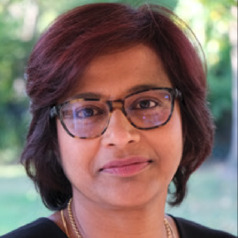
Kusum Mundra
Associate Professor of Economics, Rutgers University - Newark
Kusum Mundra is an Associate Professor in the Department of Economics at Rutgers University Newark. Her research interests are in the area of Applied Econometrics, Immigration, Housing, Population Economics, Social Networks. She has published in various economic journals including the International Migration Review, Demography, American Economic Review- Papers and Proceedings, Empirical Economics, Review of International Economics, Journal of International Trade and Economic Development, International Trade Journal, Terrorism and Political Violence, the Handbook of Applied Econometrics and Statistical Inferences, and the Frontiers of Economics and Globalization – Migration and Culture. She is in the Editorial Board of Journal of Quantitative Economics. Dr. Mundra's research has been cited in various media outlets such as Washington Post, US News, NPR (Marketplace), Economist. She is a Research Fellow at the Institute for the Study of Labor (IZA) and a fellow at the Global Labor Organization (GLO). She received her Ph.D in Economics from the University of California, Riverside and an M.A. from Delhi School of Economics, India.
Less ![]()
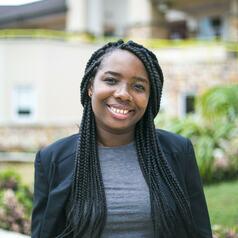
Kuukuwa Manful
Postdoctoral Researcher in Politics of Architecture, SOAS, University of London
I am a trained architect and researcher who creates, studies, teaches and documents histories, theories, and politics of the architecture of Africa.
I am currently a visiting postdoctoral scholar at the Center for Advanced Study in the Behavioral Sciences at the University of Stanford and a postdoctoral researcher on the African State Architecture Project at SOAS, University of London. I have a PhD in Politics and International Studies from SOAS, University of London, an MSc in African Studies from The University of Oxford, and Masters and BSc Architecture degrees from the Kwame Nkrumah University of Science and Technology.
I am writing a book, based on my PhD research, on ‘The Architecture of Education in Ghana’ which examines nation-building, social class, and modernness through a longue durée analysis of the sociopolitical and physical architectures of secondary schools. My academic publications, creative writing, and public scholarship have appeared in 'African Affairs', 'Al Jazeera', 'Curator: The Museum Journal', and 'Tampered Press'.
Less ![]()
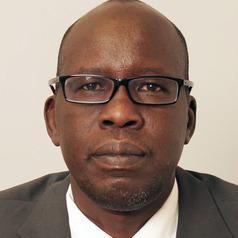
Kuyok Abol Kuyok
Associate Professor of Education, University of Juba
Kuyok Abol Kuyok is an associate professor in the College of Education at the University of Juba, South Sudan. A graduate of the University of Juba’s College of Education, he obtained MRes and DPhil degrees from the Institute of Education, London. Before returning to South Sudan in 2010, he was a researcher at the Institute for Policy Studies in Education (IPSE), London Metropolitan University. At the University of Juba, he teaches research methodology, sociology of education and comparative education. His academic interests are in higher education, education in post conflict contexts, and comparative education-national systems of education.
He’s the author of South Sudan: the Notable Firsts, Bloomington: Author House, 2015. The book is a biographical dictionary of eminent personalities in South Sudan since Nyikang, the 16th century founding Reth (King) of the Shilluk monarchy. He has published papers in peer-reviewed journals and contributes articles for national and international publications on educational issues.
Less ![]()
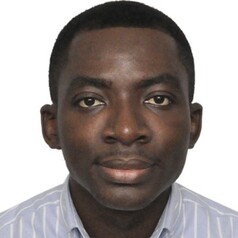
Kwame Adjei-Mantey
I hold a PhD in Economics from Kobe University, Japan, and an MPhil in Economics from the University of Ghana and a BA in Economics from the Kwame Nkrumah University of Science and Technology, Kumasi, Ghana.
Less ![]()
- Market Data





















